Where will Xi Jinping’s punishing trade retaliation end?
If our biggest trading partner is trying to scare farmers and miners, they are doing a terrific job. But a profound gap exists between the rhetoric and the reality.
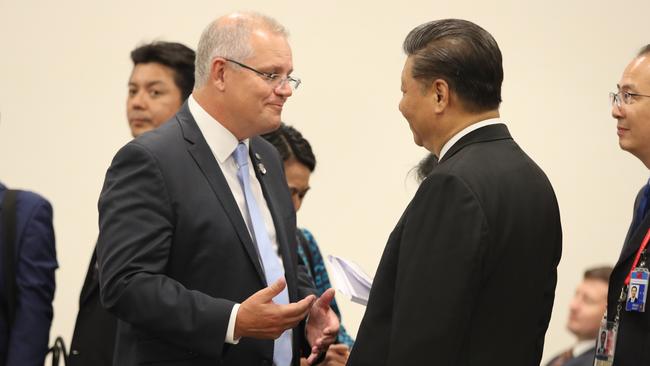
What is the Chinese government trying to achieve with Australia?
The Lowy Institute in June found 94 per cent of Australians wanted the federal government to pursue markets other than China.
Some might have thought such a thumping number would encourage the wiser heads running our biggest trading partner to calm things down.
Instead, it seems Beijing took it as a challenge.
In the four months since, it has overseen a series of trade retaliation measures apparently designed to chip away at the remaining 6 per cent.
Uncertainty is everywhere.
“We don’t know,” one member of Australia’s lobster industry said on Monday when asked whether hundreds of thousands of dollars of China’s favourite banquet food had been held up at Shanghai’s Pudong airport for political reasons.
The coal industry had a similar answer in October when stories of a go-slow on Australia’s sootiest export returned for the second time this year.
Now the copper and sugar industry find themselves in the same limbo after an unconfirmed report by Hong Kong’s South China Morning Post newspaper.
If Australia’s biggest trading partner is trying to scare farmers, miners and other business people from dealing with them, they are doing a terrific job.
There remains a profound gap between the rhetoric and the reality.
Everyone knows this has not been a great year for the Australia-China relationship.
It is less well known that Australia in 2020 is on track to export its second-highest amount of goods to China.
Last year — when things weren’t peachy either — Australia set a new record, exporting $149.2bn to China.
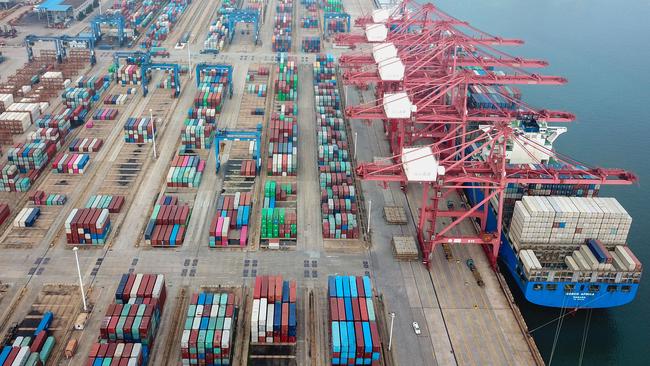
In the first nine months of the year, Australia sold $108.5bn, all during a global recession.
Whatever Australia and China are involved in, it isn’t a “trade war”.
The slugfest between US President Donald Trump and China’s Xi Jinping’s last year was a trade war.
In the Australian-China trade drama, only one side is attacking. And even then, it is buying a lot more than it is banning.
“They are just nibbling around the edges,” Geoff Raby, Australia’s former ambassador to China, said last week.
So where will it end?
That depends on Beijing’s intentions.
Australians are a pretty simple bunch. Give us a call and we’ll talk. Fancy our crustaceans and we’ll sell them to you.
Hold up our live lobsters for four days at a Shanghai airport, don’t take our Trade Minister’s calls, allow stories about further bans to run unanswered during a trade fair that is supposed to demonstrate China’s openness to the world, and we will join the dots.
Beijing — preoccupied with the US election — certainly isn’t unjoining them.
The Morrison government is of the view that if China wants to improve the relationship, it is going to require some clear action — not messaging in state media, not interviews by former Chinese ambassadors in Canberra.
Something real, like waiving the investigation hanging over Australia’s wine industry.
“There wouldn’t be a single person in the industry who doesn’t think it’s bullshit,” was how one Australian winemaker summarised the dumping claims by China’s commerce ministry.
A sensible resolution to that situation, which could decimate Australia’s more than $1.2bn of exports to China overnight, is the sort of action that would help rebuild trust.
Unless, of course, Beijing really is trying to convince the remaining 6 per cent of Australians to change their mind about trading with China.
If that’s the plan, no adjustments are required.
More Coverage
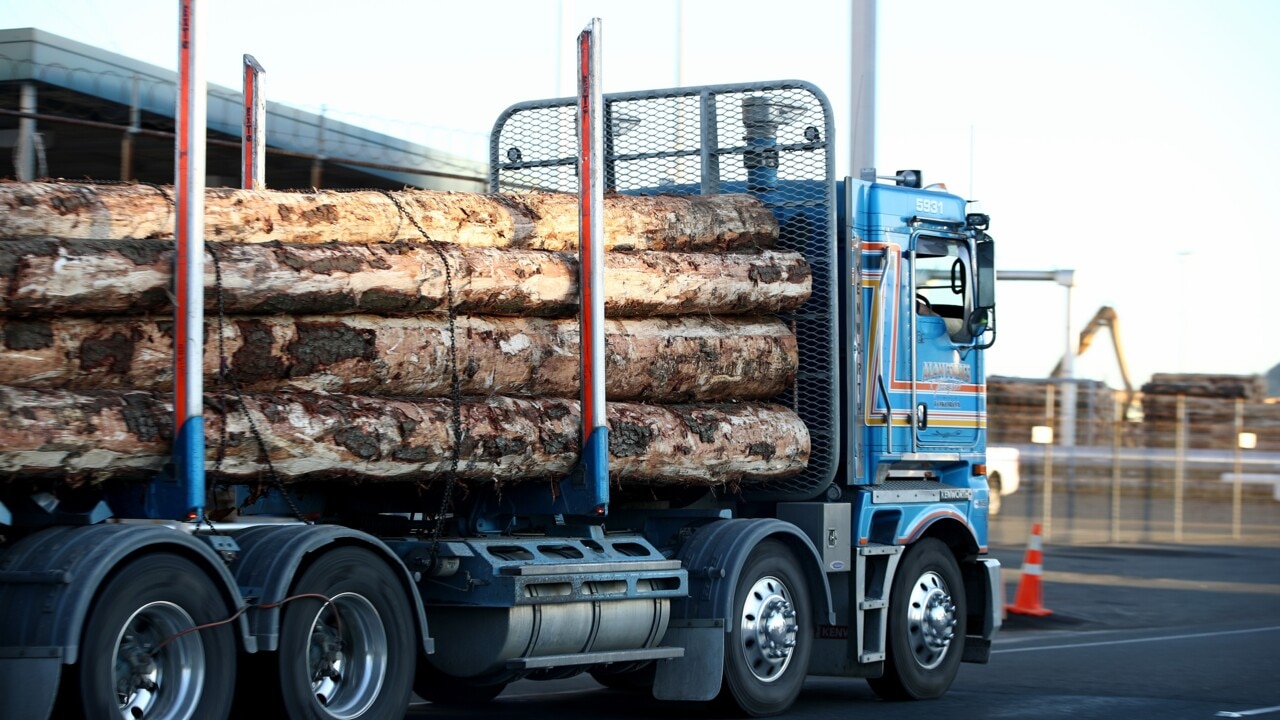


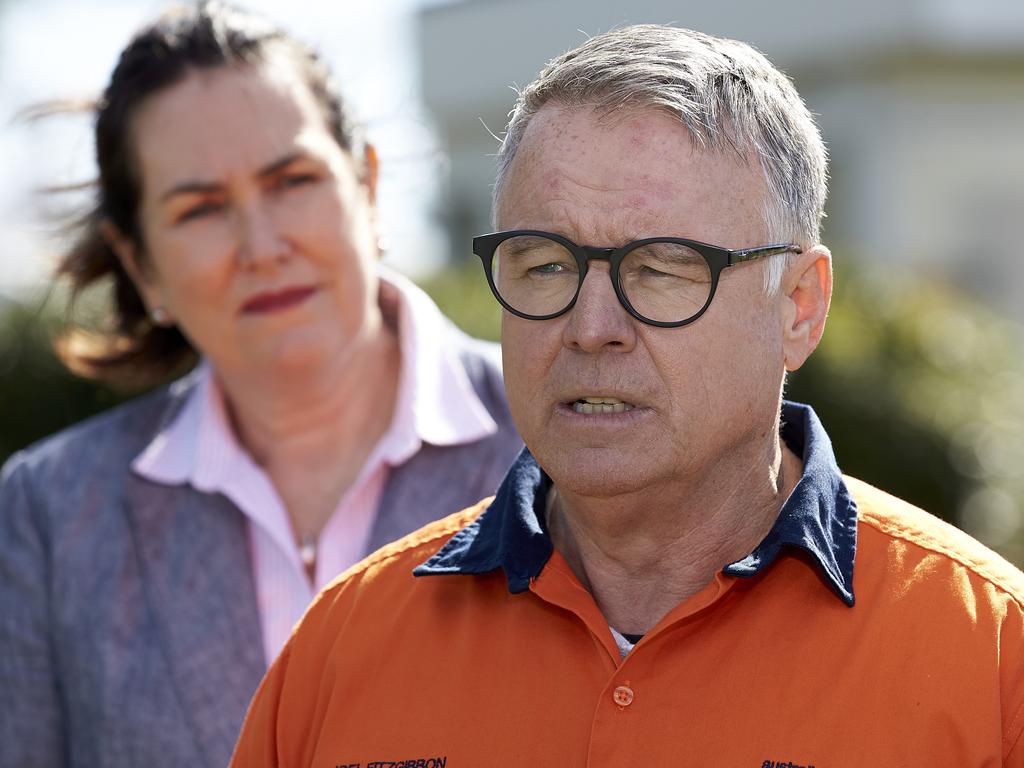


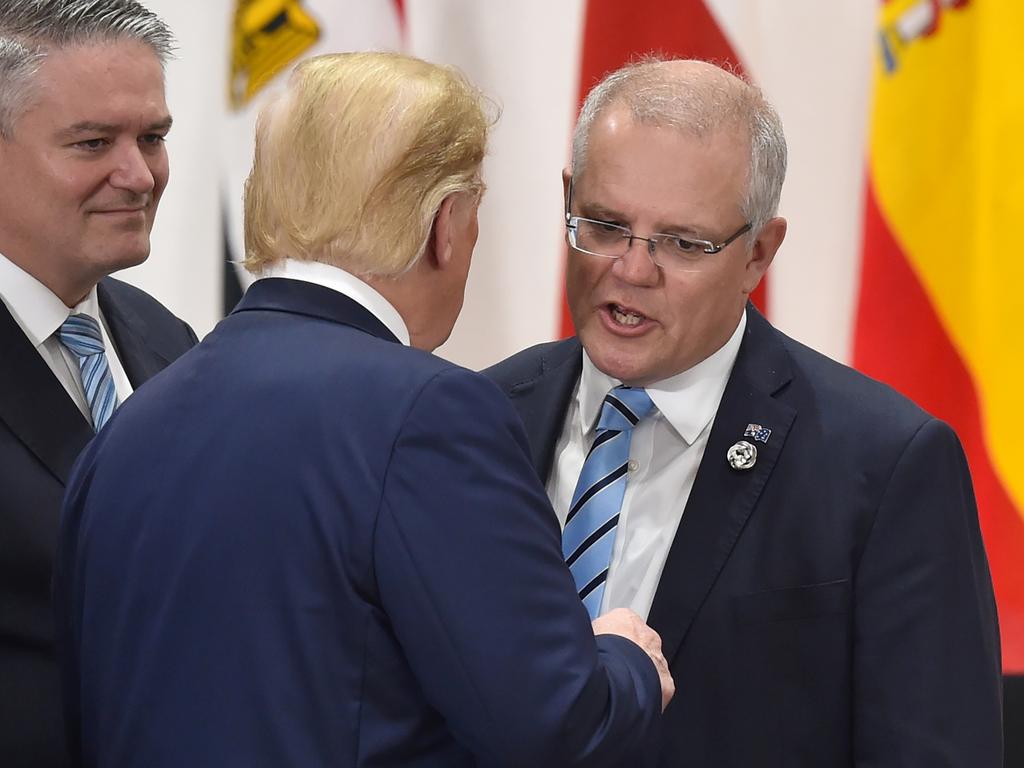


To join the conversation, please log in. Don't have an account? Register
Join the conversation, you are commenting as Logout